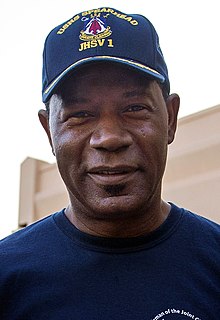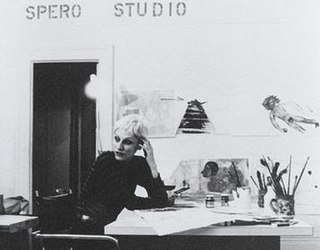A Quote by Charles Dickens
Mr. Pickwick took a seat and the paper, but instead of reading the latter, peeped over the top of it, and took a survey of the man of business, who was an elderly, pimply-faced, vegetable-diet sort of man, in a black coat, dark mixture trousers, and small black gaiters; a kind of being who seemed to be an essential part of the desk at which he was writing, and to have as much thought or sentiment.
Related Quotes
10 years ago the black man knew what his condition was. And today, because of the world revolution that's taking place all over this earth, the black man would be fighting for what he knows is his by right, but the movement on the part of [Martin Luther] King and the others had done nothing but slow down the militancy that is inherent in the nature of the black man.
If a dog is biting a black man, the black man should kill the dog, whether the dog is a police dog or a hound dog or any kind of dog. If a dog is fixed on a black man when that black man is doing nothing but trying to take advantage of what the government says is supposed to be his, then that black man should kill that dog or any two-legged dog who sets the dog on him.
One of the facets of growing up the way I did, I never had the experience of being solely in the black community. Even my family, my mother is what they call Creole, so she's part French, part black, and grew up in Louisiana. It's a very specific kind of blackness that is different than what is traditionally thought of as the black community and black culture. So, I never felt a part of whatever that was.
The black man in North America was sickest of all politically. He let the white man divide him into such foolishness as considering himself a black 'Democrat,' a black 'Republican,' a black 'Conservative,' or a black 'Liberal' ...when a ten-million black vote bloc could be the deciding balance of power in American politics, because the white man's vote is almost always evenly divided.
As a black person on the outside, because there's so much black art and so much of black people's work circulating, so many people imitating what black people do, you would think that there'd be more black people on the business side. It didn't cross my mind that every label head, for the most part, is a white guy.
I've never seen a sincere white man, not when it comes to helping black people. Usually things like this are done by white people to benefit themselves. The white man's primary interest is not to elevate the thinking of black people, or to waken black people, or white people either. The white man is interested in the black man only to the extent that the black man is of use to him. The white man's interest is to make money, to exploit.
When they took a young man into Tellson's London house, they hid him somewhere till he was old. They kept him in a dark place, like a cheese, until he had the full Tellson flavour and blue-mould upon him. Then only was he permitted to be seen, spectacularly poring over large books, and casting his breeches and gaiters into the general weight of the establishment.
Why did they believe? Because they saw miracles. Things one man took as chance, a man of faith took as a sign. A loved one recovering from disease, a fortunate business deal, a chance meeting with a long lost friend. It wasn't the grand doctrines or the sweeping ideals that seemed to make believers out of men. It was the simple magic in the world around them.
Man is but mortal: and there is a point beyond which human courage cannot extend. Mr. Pickwick gazed through his spectacles for an instant on the advancing mass, and then fairly turned his back and-we will not say fled; firstly, because it is an ignoble term, and, secondly, because Mr. Pickwick's figure was by no means adapted for that mode of retreat-he trotted away, at as quick a rate as his legs would convey him;.
When I showed ‘Black and the Red III’ in Malmö, Sweden, it was a continuum - a band - all around the galleryseeing this huge space in the gallery in Malmö, I just took a deep breath and I put the paper around in a single band. Then I continued along, printing on the wall like a trompe l’oeil to reiterate the images in the work printed on paper that I had push-pinned to the wall. I literally took the rhythm and the images from ‘Black and the Red III’ and continued that on the wall.
































